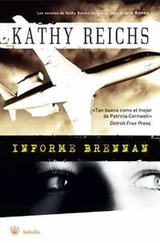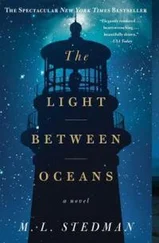After some time, we pulled up to an imposing brick wall with signage stating CAMP LEJEUNE, HOME OF EXPEDITIONARY FORCES IN READINESS.
Rigg spoke when we’d cleared security.
“Looks like you could use some shut-eye.”
“It’s that obvious?” I smiled. I think.
“Yes, ma’am.”
As Rigg drove across the base, I cracked the window and inhaled the warm night air. The smell of fresh-cut grass, pine, and red cedar made me realize how glad I was to be back in North Carolina.
The Lejeune Inn, built to provide temporary housing, was brick and strictly utilitarian. The Boxy and Plain School of architecture.
“Get yourself sorted with the front desk,” said Rigg. “I’ll bring your gear.”
I drew a first-floor room. Rigg appeared as I was unlocking the door.
“Have a good night, ma’am.” A curt nod, and he was gone.
I looked around.
A kitchenette. A table and two chairs. Built-in drawers and shelves, one holding a TV. Two double beds.
An electric alarm on a stand between the beds said 12:47. In the quiet, I could hear it humming softly.
After minimal toilette, I stripped down and crawled under the sheets. Sleep claimed me as soon as my head touched the pillow.
I awoke to the shrill of a phone.
“Mm.”
“Sergeant Rigg, ma’am. Major Hawthorn would like to meet with you at ten hundred hours.”
I glanced at the clock. 9:24.
“I’ll be in the lobby in twenty minutes.”
Quick shower, shampoo, teeth. A dab of blusher, one ghastly instant coffee, and I was out the door.
Rigg was waiting. He nodded, then turned quickly. I think he felt awkward, not being able to salute.
The morning was warm but overcast. Dozens of birds stood sentry on power lines and in overhead branches.
As we drove along the beach, I noticed a Marine unit doing nautical maneuvers, six-person crews humping Zodiacs into the surf. I could hear the drill sergeant barking orders over the sound of the waves.
The Legal Services and JAG office was located a short distance up Holcomb Boulevard. Rigg dropped me at the front door.
“Ask for Major Joe Hawthorn.”
The receptionist had long legs, smooth skin, and amber hair piled high. Her drawl was thicker than Gran’s cheese grits.
“Temperance Brennan for Joe Hawthorn,” I said.
“I am so sorry.” As though personally aggrieved. “Major Hawthorn’s running a smidge late. Would you care to wait in his office?”
Smidge?
“That would be fine.”
“Please come with me.”
Smiling, she rose and turned right down a narrow hall, stilettos clicking on the shiny gray tile. We entered a door with a plaque bearing Hawthorn’s name and rank.
“Can I get you anything? Coffee or tea? Perhaps a soda?”
“Coffee, please.”
The office triggered a flash image of Mrs. Flowers. The blotter was positioned perfectly parallel to the edge of the desk. Everything on it was arranged with exactitude. A yellow tablet. A letter opener. Three pens equidistant from each other, nibs perfectly aligned.
A framed photo showcased a blandly handsome man, his blandly pretty wife, and two well-groomed boys. I was imagining names when Ms. Southern Apple Pie returned and handed me a napkin and a steaming Styrofoam cup. Hawthorn entered as she was leaving.
“I apologize for my tardiness.”
Hawthorn’s appearance mimicked the state of his office. Shoes gleaming, uniform pressed and sharply creased, mustache squarely edged, hair parted with laser precision.
I rose. We shook hands. Hawthorn’s palm was dry, his nails and cuticles perfectly manicured.
“Thank you for coming. I know you must be tired.”
“I’ll catch a nap later.”
“Please sit.” Gesturing to the spot I’d just vacated.
I sat. Hawthorn moved to the chair behind his desk.
“As you know, the Article 32 hearing will resume tomorrow.” Hawthorn tented his fingers and rested his chin atop them. “Do you know what an Article 32 is?”
“In general.”
“Since the early 1950s, military justice has been administered in accordance with the UCMJ, the Uniform Code of Military Justice. It provides the statutory framework that is the bedrock of both substantive criminal law and criminal procedure in the U.S. military.
“Many of the substantive provisions are similar to those found in American state and federal jurisdictions. The procedural provisions can be quite different.
“Under Article 32 of the UCMJ, no charge may be referred to a general court-martial for trial until an impartial investigation of the truth of the matter has been made. This is similar to a grand jury proceeding for civilians.”
Pete had always maintained that Article 32 actually affords an accused greater rights because it allows the accused and his counsel to be present at the hearing, to cross-examine government witnesses, and to present evidence, none of which is permitted before a grand jury.
I recalled how he’d bristle on hearing the old Groucho Marx gag that military justice is to justice as military music is to music.
Hawthorn’s voice brought me back from my thoughts.
“The government has presented all its evidence. I intend to call only one witness, that being you. I have reviewed your report and plan to take you through it, just as any civilian lawyer would.”
Hawthorn leaned back in his chair.
“I suppose you’d like to know a bit about the man of the hour?”
“Anything you think is pertinent, yes.”
“Second Lieutenant Gross’s father was Air Force, so he grew up a typical military brat. Base to base, hitch to hitch. Had the armed forces in his blood, you might say.”
“Sometimes it goes the other way.”
“Yes, but not for John. After graduating high school—as class valedictorian, I might add—he headed straight to a Marine recruiting office.”
“Not Air Force?”
Hawthorn dropped his hands, palms flat on the blotter. “I suspect he felt the need to prove something to his father.”
I didn’t query the meaning of that.
“John enlisted on an 18x contract, which offered a direct shot at a combat assignment. After training, he volunteered, and was deployed, to Desert Storm. He served in the Middle East, on and off, from ’91 to ’94.”
“That’s a good stretch.”
“Yes.” Hawthorn appeared on the verge of a comment, decided against it. “At the completion of his last deployment, John did not reenlist. He’d proven what he needed to prove, to himself, to his father. He had other plans for his life. Using the GI bill to fund his education and working full-time, he enrolled at NC State University. After graduating with a degree in political science, he taught high school in Charlotte for several years. Or it might have been Charleston.”
“Yet he must have reenlisted.”
“November ninth, 2005. That date have any significance for you, Dr. Brennan?”
I shook my head.
“It did for John. On that date, suicide bombers hit three American hotels in Amman, Jordan. The Radisson SAS, the Grand Hyatt, and a Days Inn. The Radisson was the worst. Husband-and-wife bombers walked into a ballroom in which a nine-hundred-guest wedding was in progress. Thirty-eight people were killed, including the fathers of both the bride and groom.”
I remembered the attacks now. Sixty killed, 120 injured.
“Reenlistments tend to rise after such incidents. In the wake of 9/11, lines ran out the doors of many recruiting centers.”
Hawthorn’s phone rang. He glanced at the caller ID but did not pick up.
“John experienced a sense of personal accountability. This is my interpretation, you understand. He never used those words specifically. It’s what I’ve picked up from our many conversations.”
Читать дальше










